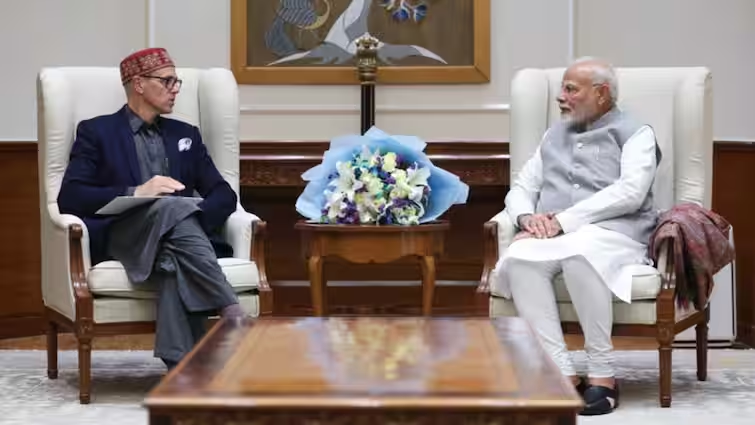Global Trade Tensions Escalate as China Slams U.S. Tariffs and Vows Strong Retaliation
April 9, 2025 — The ongoing economic conflict between the United States and China took a dramatic turn this week as China issued a sharp condemnation of the United States’ latest tariff measures. In a strongly worded statement at the World Trade Organization (WTO), China labeled the U.S. decision to impose sweeping new tariffs as “reckless and destabilising,” warning that such actions threaten the fragile global economy and undermine international trade norms.
The rising confrontation between the world’s two largest economies is once again sparking fears of a prolonged trade war with wide-reaching consequences for businesses, markets, and consumers around the world.
China Condemns U.S. Tariffs at WTO Meeting
Speaking at a WTO session in Geneva, China’s representatives voiced “grave concern and firm opposition” to the tariffs recently announced by U.S. President Donald Trump. The new measures include an extraordinary 104% duty on a broad range of Chinese imports, an action described by the White House as “reciprocal” in response to what it perceives as unfair trade practices by Beijing.
But for China, the move was seen as excessive and harmful. “This is a dangerous escalation at a time when the global economy is still recovering and highly vulnerable,” said a senior Chinese official during the meeting, according to Reuters. “The United States is not only acting unilaterally, but it is also undermining the multilateral system that has governed global trade for decades.”
Beijing accused Washington of violating WTO rules and called on the organization to assess the broader impact of such measures on international commerce. China emphasized that “tariffs are not an appropriate solution to trade imbalances” and that their use as punishment only serves to destabilize global markets.
China Retaliates with 84% Tariffs on U.S. Goods
In a swift and assertive response, China announced its own countermeasures: an 84% tariff on a wide range of American imports, increasing its existing duties from 34% to 84%. These retaliatory tariffs, effective from Thursday, were disclosed by China’s Ministry of Finance, which emphasized that while China opposes trade wars in principle, it “will not hesitate to defend its national interests.”
“China will not initiate conflict but is prepared to respond decisively when provoked,” said the ministry. “We urge the United States to return to dialogue and cooperation rather than confrontation.”
The new tariffs will affect a broad swath of U.S. exports, including agricultural goods, industrial machinery, and high-tech components—sectors that are deeply integrated into global supply chains and that have already experienced disruptions in past trade conflicts.
Global Markets React to Renewed Trade War Fears
The financial impact of these escalating tensions was immediate. U.S. stock index futures plunged shortly after the news broke, with market analysts warning of significant volatility ahead. In Asia, the Nikkei 225 index in Tokyo closed down nearly four percent, and European markets, including those in London, Paris, and Frankfurt, also saw major losses in early trading.
“Investors are worried this is just the beginning of another full-scale trade war,” said a senior market strategist at a global investment firm. “Supply chains are global, and the impact of such high tariffs will be felt far beyond just the U.S. and China.”
The announcement also triggered a fall in commodity prices, including oil and agricultural goods, as traders anticipated disruptions in international trade flows and a drop in demand.
Trump’s Tariff Policy Under Fire
The 104% tariff is part of President Trump’s continued efforts to pressure trading partners—especially China—into making trade concessions. Since returning to the political spotlight, Trump has promised to restore “fairness” to global trade, accusing China of intellectual property theft, currency manipulation, and dumping cheap products into the U.S. market.
Trump has insisted that tariffs are a necessary tool to correct longstanding imbalances. However, critics argue that this strategy could backfire by increasing costs for American businesses and consumers.
“Tariffs of this scale function like taxes,” said a U.S.-based economist with the International Trade Council. “Ultimately, American companies and shoppers will bear the burden of higher prices.”
While Trump claims the tariffs will force countries to the negotiating table, the aggressive nature of the policy has strained relations with not only China but other key U.S. trade partners as well.
EU and Other Nations Eye Countermeasures
China is not the only country reacting to the latest round of U.S. tariffs. The European Union is reportedly exploring its own response, with officials in Brussels warning that the U.S. actions could lead to a cascade of retaliatory moves from multiple nations.
“This kind of unilateral action by the U.S. risks unraveling decades of progress in building a rules-based global trading system,” said an EU spokesperson. “We are closely monitoring the situation and are prepared to defend our economic interests if necessary.”
Japan, Vietnam, and other nations whose exports have also been affected by recent U.S. tariff increases are believed to be in early discussions about forming a joint response, raising the possibility of a broader economic conflict involving multiple global economies.
WTO’s Role Under Scrutiny
With the WTO at the center of the dispute, questions are being raised about the effectiveness of the organization in resolving high-level trade conflicts between major powers.
China has called on the WTO Secretariat to investigate the implications of the U.S. tariffs and provide a formal report to all member states. However, enforcement within the WTO has often been slow and limited in scope, especially when it comes to disputes involving powerful member nations.
Despite calls for reform, the WTO has struggled in recent years to maintain relevance amid rising protectionism and nationalist economic policies.
“The global trading system is at a critical crossroads,” said a trade law expert at a Geneva-based think tank. “Without strong enforcement and cooperation, we risk moving back toward a fragmented world where power, not rules, governs trade.”
Economic Consequences Loom
Economists warn that prolonged tariff battles could have significant long-term consequences, especially at a time when the world is still managing the aftermath of the COVID-19 pandemic and grappling with high inflation and sluggish growth in several regions.
“Trade wars are damaging for all sides,” said a senior economist at the World Bank. “They create uncertainty, discourage investment, and ultimately reduce economic growth for everyone involved.”
For businesses, the uncertainty is already taking a toll. Global manufacturers are reviewing supply chains, delaying investments, and bracing for higher input costs. Exporters, especially in the U.S. agricultural and technology sectors, fear losing access to the lucrative Chinese market.
In a joint statement, several U.S. industry groups urged the Biden administration to reconsider the Trump-era tariff approach and re-engage with China through diplomacy. “We need long-term solutions, not short-term escalation,” the statement read.
With both Washington and Beijing showing no signs of backing down, the road ahead looks uncertain. The economic risks are high, and the diplomatic divide continues to widen.
Unless there is a major shift in policy or a new round of negotiations, experts believe the trade war could deepen, triggering more market turmoil and weakening global economic recovery.
“Trade should not be a battleground,” said one senior WTO official. “The world cannot afford another era of economic nationalism and tariff walls.”
As nations watch and wait, the coming weeks could prove decisive in shaping not just the future of U.S.-China relations, but the very structure of global trade.















